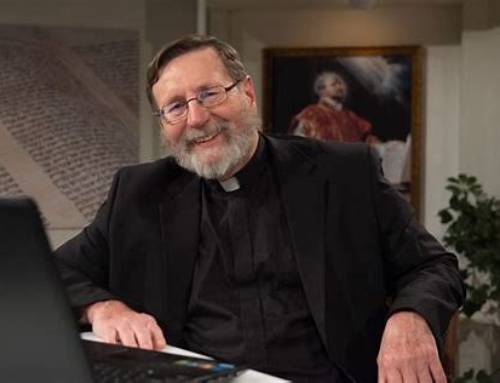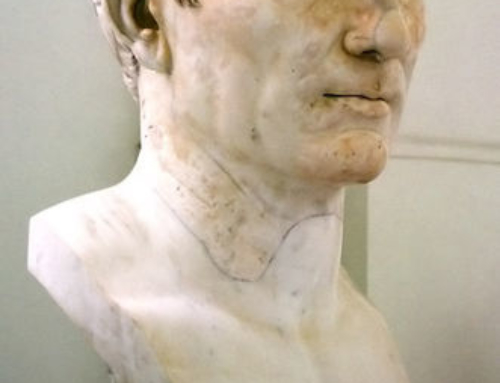Sometimes we have to just stop and re-calibrate.
Fix our inner GPS, re-align our destination, check our priorities and then move on.
The present scandals in the church should help us to do just that. So first of all check what you thought about your priests, bishops, cardinals and the pope.
Yes, they are the icons of Christ. Yes, the receive special graces at ordination. Yes we believe all that, but what were your attitudes to your church leaders?
Did you think we were all wonderful? Did you fall for the blandishments of a Father Fabulous? Did you believe their pious prayers, their spiritual language and their postures of piety?
Did you do so because you really believed what they said and really trusted them or was your own response adolescent or even infantile? Were you trusting your clergy like they were spiritual sugar daddies–doing all the spiritual heavy lifting for you and giving you everything you needed so you wouldn’t have to do anything, take responsibility for yourself and be a spiritual grown up?
Here’s the hard truth–just like one day you had to learn that your family father was a flawed, broken and frail human being, so it is part of growing up spiritually to realize that your Fathers in God are also real, ordinary, broken people who are in need of healing.
Unfortunately the Catholic Church, more than any other, puts the clergy on pedestals. In my post yesterday I explained some of the reasons why this happens and why both the clergy and the laity collude in this pleasant fiction. Oh yes, I know, we are not honoring the man with all the pomp and circumstance. We are honoring Jesus.
But sometimes that’s not so clear, and sometimes we are happy for it not to be so clear.
So we put the clergy on a pedestal, and then when they fall we descend like vultures to pick over their corpse. The sinners get all the blame and we pile it on, and oh boy do we pile it on, because the more we rage about their wickedness, the more righteous we feel ourselves to be, and if the sinner is from the other tribe we feel that inner joy at seeing our enemies fallen and exposed.
I’m weary of the whole damned mess, and I want justice to be done and those responsible to own up, and I want things to change.
But I also want to salvage from the wreckage a renewed vision of holiness.
What does it actually mean to be holy and what does that look like? Sometimes we are so distracted by our religion that we cannot see Christ the Lord.
I’ve often joked that I don’t know why I am a priest because I have never liked religious people very much.
What I’ve meant by that is that I’ve never much liked all the folks who are outwardly pious.
Sure, I’ve met some good ones and genuine ones, but I’ve met an awful lot whose hypocrisy and inner stench was in direct proportion to their outer shows of religion and righteousness.
So what does true holiness look like?
First of all, holiness is wholeness. A person who is holy is whole. They are complete. They are not grasping and greedy, needy and narcissistic. The whole person likes other people but he doesn’t need them–that is to say he doesn’t need them for his own self image or his own emotional needs. The whole person is content without being complacent and confident without being cocky. The whole person is self accepting-warts and all.
Second (and linked with the first) the truly holy person is humble. He or she is not humble in the groveling doormat kind of way. She is a woman not a worm. He is a man not a mouse–they know their worth, no more and no less. The holy-humble person has a sense of proportion, a sense of humor and a load of common sense. This holy humble person is ordinary and that is what makes them extraordinary.
Third, the holy person has learned how to love others. They do not love others for the pleasure they can give. They love for the pleasure they can give the other. They are genuinely interested in other people as fellow pilgrims, brothers and sisters and curiosities of the kingdom. They do not regard others as objects of sexual desire, but as sons and daughters of Adam and Eve. Furthermore, the holy person has learned to love others naturally. They do not try to do this, they have simply become loving people. Love is what they are, not what they do.
Fourth, the holy person regards religion as the rules to the game, not the game itself. The devotions and regulations, the doctrines and dogmas, the rubrics and rules are all there as a ladder on which to climb. They are the map, not the journey, the musical score, but not the music, the technique but not the art.
Fifth, the holy person has learned to love all things according to their worth. They see a thing for what it is and love it accordingly. Therefore if a thing is trash they love it by putting trash where it belongs–in the trash can. If a thing is an odious sin they love it by banishing it from their life. If a trinket is pretty they love it as a pretty trinket not as a priceless heirloom with a price tag on it. They love their new car because it is an efficient and safe means of transportation and because it is a beautiful piece of engineering design not because it it expensive or prestigious or better than their neighbor’s car. The holy person loves all things according to their worth and most of all they love all people according to their worth.
Sixth, the holy person is ordinary. They blend in and do not draw attention to themselves. The truly holy person is therefore hard to find. If you think you have found one and say, “You are a holy person. You are the one I have been looking for” they will say, “No, I am not the holy person. You must have made a mistake. Keep looking.” The holy person is the priest in the run down parish who never goes to meetings because he’s busy helping people. The holy person is the disabled woman who cleans for old people and forgets to charge them. The holy person is the old man who never misses daily Mass and tells the priest not to come visit because they’re both too busy. I could go on.
Seventh, the holy person is a person of prayer, but you don’t see it much. Like the old man said of the new priest who was a scholar but a modest man, “I like this new priest. He’s a learned man, but it don’t show.”
Eighth – the holy person is joyful but not naive. His joy is based in beauty, truth and goodness–not in a romantic dream which leads to bitter disappointment. His joy is that of the child: care free, natural and content.
So when we’re all done criticizing the bishops for their failings, the cardinals for their corruption and the church for her frailty perhaps we could move on to first weeping over the whole mess, then praying for them, then to re-adjust our vision–to look up to Jesus Christ the author and completer of our faith, and through him to not only look for the holy people, but to try, by God’s grace, to be like them.







Leave A Comment
You must be logged in to post a comment.